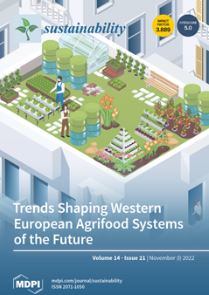Willingness to Pay for Weather-Indexed Insurance: Evidence from Cambodian Rice Farmers
Abstract
This study examines Cambodian rice farmers’ willingness to pay for the weather-indexed insurance (WII) proposed to manage the financial impact of shifting monsoon rainfall patterns in Battambang Province in north-western Cambodia. Detailed interviews are conducted in the districts of Bavel and Thma Koul. We first analyse farmer respondents’ socioeconomic and demographic characteristics, climate change perceptions and experience, risk attitudes, and awareness of insurance. The binary logistic model is used to identify factors that significantly impact farmers’ willingness to pay (WTP) for WII. Our results show that farmers in general had lower awareness of how to use innovative financial products to adapt to extreme weather. The results also demonstrate that farmer respondents’ marital status, the number of off-farm labourers, and the farm size have a positive effect, whereas the number of children in the household has a negative effect on farmers’ WTP for WII. Specifically, being married, an increase of one off-farm labourer, and an increase of one hectare (ha) of farmland increase the probability of demand for WII by 38.6%, 21.4%, and 5.1%, respectively. In contrast, an increase of one child reduces the probability of WII demand by 9.7%. We also identify challenges confronted by Cambodian farmers for participating in the proposed WII scheme and provide relevant recommendations to overcome these challenges.

